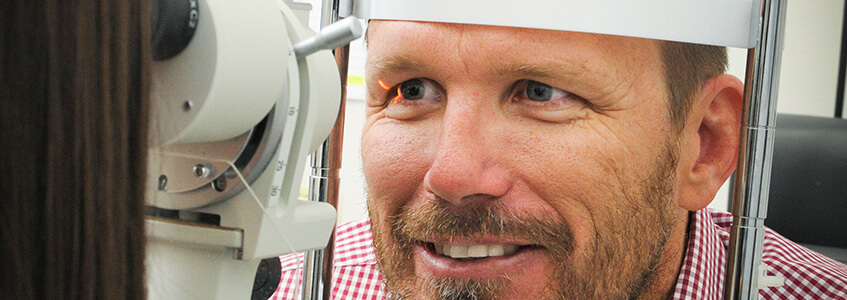
Dry Eye Syndrome
What is Dry Eye?
Essentially, dry eye syndrome refers to the irritation and inflammation of the anterior (front) structures of the eye caused by a chronic lack of moisture on the surface of the eye. Symptoms include constant dryness, watering, grittiness, itchiness, redness and burning sensations. Sometimes sufferers have a sense of having something in their eye, and, if left untreated, dry eye symptoms can worsen and cause ulcers, pain and impaired vision.
What Causes Dry Eye?
Dry eye is caused by a lack of tears being produced by the glands near the eye. It can also be caused by inflammation of the meibomian gland, which results in the excessive evaporation of tears. Many different things are attributed to causing these gland malfunctions including:
- Prolonged computer work
- Age
- Menopause and other hormonal changes
- Pregnancy
- Dry and dusty climates
- Smoking
- Medication such as antidepressants, birth control pills, blood pressure medication and antihistamines
- Lack of blinking
- Spending prolonged periods in air conditioned environments
How do you test for dry eye?
We test for dry eye with simple and effective diagnosis tools, including fluorescein dye or Phenol Thread Test.
How do we treat it?
Currently, we take a three-tiered approach to treating dry eye and blepharitis:
- Over the counter ocular lubricants – these lubricants often provide effective relief for patients experiencing mild symptoms.
- Blephasteam dry eye therapy – a humidity goggle applied in-practice to bring relief of dry eye and blepharitis. Blephasteam dry eye therapy works by warming meibomian gland oils making it easier for the optometrist to unblock your meibomian glands.
- Manuka honey eye drops – a relatively new development in dry eye therapy. These eye drops contain a mix of Australian honeys, including Manuka honey which is renowned for its antibacterial benefits. We recommend Manuka honey eye drops when ocular lubricants aren't providing effective relief.
There are also lifestyle and dietary changes we can recommend to reduce and prevent dry eye. Get in touch to find out more.
To find out more about the eye conditions we offer clinical care for and how we can help you prevent, monitor or manage a chronic eye condition, get in touch today.













